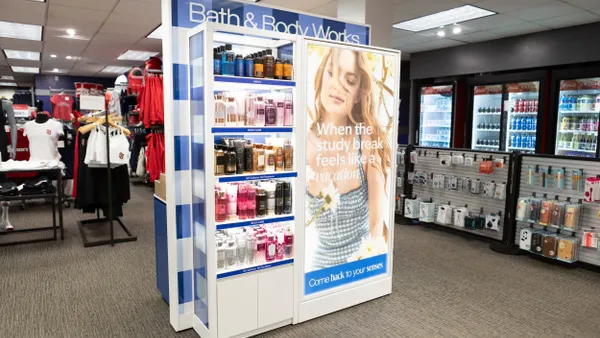Dive Brief:
-
Menswear brand Indochino has tapped fintech startup Klarna to help launch flexible-term installment plans so customers can pay for purchases over the course of six to 36 months, according to a company press release emailed to Retail Dive.
-
The platform offers real-time approval after a four-step application process that keeps customers on the retailer's website, rather than re-directing them elsewhere, according to Klarna's press release.
-
Indochino also announced a new two-week delivery promise on purchases, cutting its previous delivery guarantee by one week, with the aim of enhancing the customer experience.
Dive Insight:
In recent months, more retailers and payment companies have begun offering installment payment programs to their customers, often using new flexible-term, instant-approval technology platforms from companies such as Klarna and Afterpay.
For example, Rebecca Minkoff and Urban Outfitters are among those that have worked with Afterpay this year. The company also recently announced it's part of a pop-up store by fashion retailer Revolve. Meanwhile, Klarna announced Rancourt & Co. as a trial customer and recently gained a $20 million investment from H&M. Mastercard, Square and PayPal also have similar offerings for merchants.
In some quarters, this trend is being viewed as a revival of retail's buy-on-layaway tradition, and the platforms being used often are referred to as "buy now, pay later" platforms. But, to be more clear, they really are "buy now, get it now, pay later" offerings — typically there is no waiting, even for the approval decision from the retailer and its payment partner on whether or not the customer can pay by installments.
These kinds of options are designed for an era in which buyers, especially the ones in younger demographics, are shying away from traditional credit-based purchasing and the interest-based debt that can pile up quickly.
Still, these fintech platforms and similar micro-loan approaches are not entirely free from controversy. For example, Afterpay and the amount of revenue it gains from late fees has been under scrutiny in that company's home nation of Australia. Regulators there and elsewhere could seek to impose rules on such companies and how their platforms can operate, but strong merchant and customer embrace of such platforms could mitigate the impact.
Meanwhile, Indochino has been rapidly expanding on the brick-and-mortar front, opening many showrooms where it can personally engage with customers, but taking steps to improve customer experience in its core online shop is just as important. Getting purchases into customers' hands more quickly, and allowing them flexible payment methods is one piece of accomplishing that.










